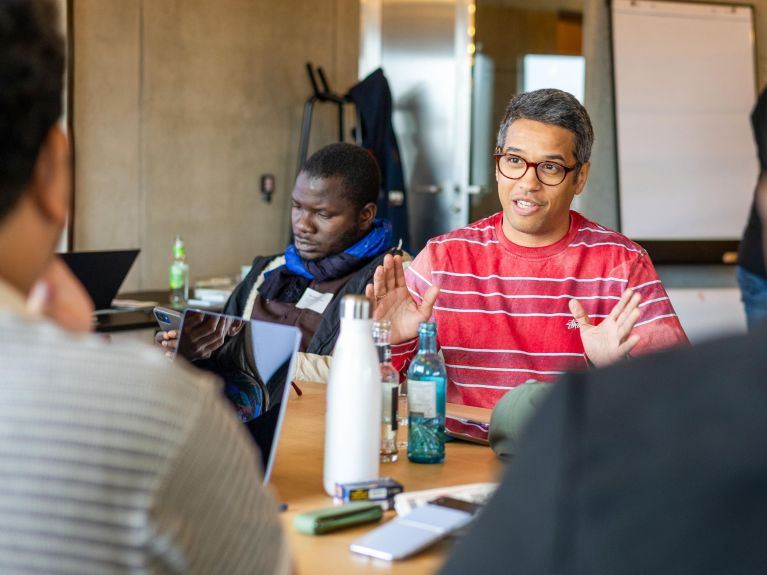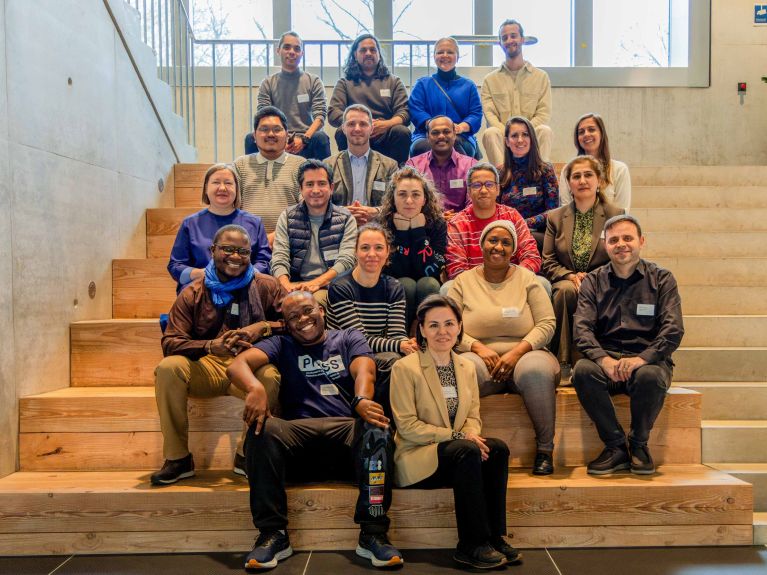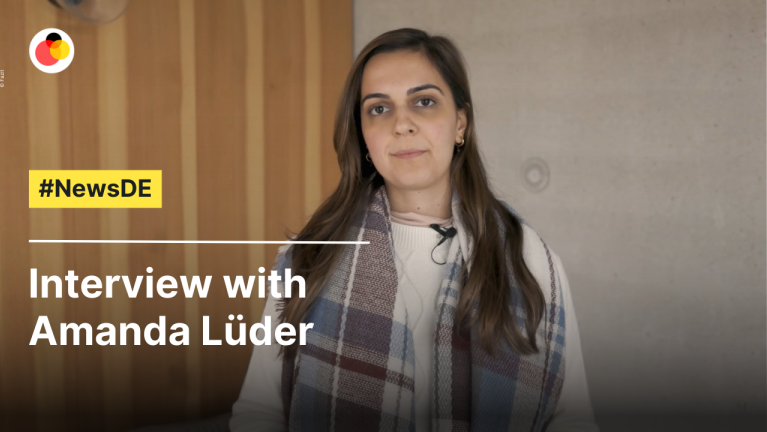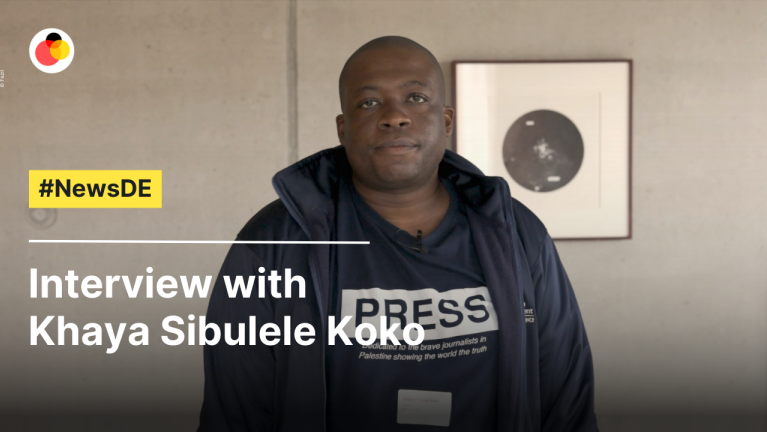Joining forces against disinformation
Around the world, media professionals are fighting manipulation and the decline in public trust. They came together to share their experiences at the invitation of the Federal Foreign Office.

On a sunny spring day, a TV editor and podcaster from Serbia sits in a seminar room in Berlin alongside 15 journalists from various countries. Speaking in stark terms about what awaits media professionals who become a thorn in the side of his country’s current government,
he is supported by an online journalist from Georgia and the director of a non-governmental organisation from Tajikistan. For both, the risk of direct state influence on their work is part of day-to-day routine. “It’s bad enough that journalists in many countries have to assume their devices are being hacked. But how do you deal with it when it’s your own government that permits such actions – or is even behind them?” Just moments earlier, during an introductory round with a representative of Reporters Without Borders, participants had been asked to describe the state of press freedom in their home countries. One journalist offered only a single word: “Escape.”
Dieses YouTube-Video kann in einem neuen Tab abgespielt werden
YouTube öffnenThird party content
We use YouTube to embed content that may collect data about your activity. Please review the details and accept the service to see this content.
Open consent formDeclining trust in the media
Media professionals spent a week discussing restrictions on press freedom in connection with the Federal Republic of Germany's visitor programme. Among other things, they discussed an issue that is becoming an increasing problem in Germany, too: disinformation campaigns and the impact they have on the vital work done by the media. In a recent survey by the German opinion research institute infratest dimap, 42 per cent of respondents said they no longer consider the media to be credible – the highest figure since 1950. “We’re seeing a clear decline in public trust,” said Steffen Grimberg, Chair of the Berlin and Brandenburg chapter of the German Journalists’ Association (DJV Berlin).
Many of the media professionals in attendance said that this lack of trust was a major challenge in their own countries, too. One TV journalist from Botswana asked the crucial question: “How can we win back trust?” Steffen Grimberg’s reply met with nods of agreement: by doing sound, clean work and clearly explaining the standards of quality journalism. “The industry needs to take a hard look at itself,” he added. “We’re seeing a growing blurring of the lines between reporting and commentary – and that’s a troubling trend.”

The challenge of self-censorship
As the day went on, it became clear just how complex the pressures on journalism around the world really are. Disinformation is a key factor, but it is combined with others such as authoritarian tendencies, underfunding and the increasing concern among media professionals that the spectrum of permissible opinion is narrowing, resulting in forms of self-censorship. This is a focus of Reporters Without Borders, which is currently conducting a qualitative study on the issue. “We’re still struggling a bit with the term,” said Katharina Viktoria Weiß, the organisation’s communications officer. “Compared to the threats journalists face in other countries, such sentiments may seem minor. But they’re part of the overall picture and shouldn’t be ignored.”
An investigative journalist from South Africa taking part in the trip said he was surprised by how disinformation is perceived in Germany: “It seems like people here are only just starting to engage with the issue. In Africa, people are used to questioning the news – we’re far more resilient in that respect than the West.” While he expressed his support for Western media’s fight against disinformation, he also called for a critical reappraisal of what he sees as often distorted reporting by Western outlets on African countries.
Dieses YouTube-Video kann in einem neuen Tab abgespielt werden
YouTube öffnenThird party content
We use YouTube to embed content that may collect data about your activity. Please review the details and accept the service to see this content.
Open consent formExpose and inform
The group was impressed by the work of the non-profit media organisation Correctiv, which attracted international attention in November 2023 for uncovering a far-right network in Germany. According to Caroline Lindekamp, head of Correctiv’s fact-checking community Faktenforum, it’s no longer enough to combat disinformation campaigns by simply disproving false claims – the so-called “debunking” approach: “It’s just as important to prepare people in advance by helping them recognise the signs of fake news.” Correctiv is actively engaged in this kind of “prebunking” work through information sessions and awareness campaigns. More broadly, it was important to involve citizens more directly. said Lindekamp – a principle that underpins Correctiv’s online platform Faktenforum. The latter allows members of the public, regardless of their journalistic background, to take part in fact-checking and support a fact-based public discourse.
After an eventful week – which included visits to the Federal Agency for Civic Education and the German Council on Foreign Relations – the journalist from South Africa summed it up as follows: “I met so many amazing colleagues here doing fantastic work under incredibly difficult conditions. It reminded me once again how important and honourable our profession is.”




